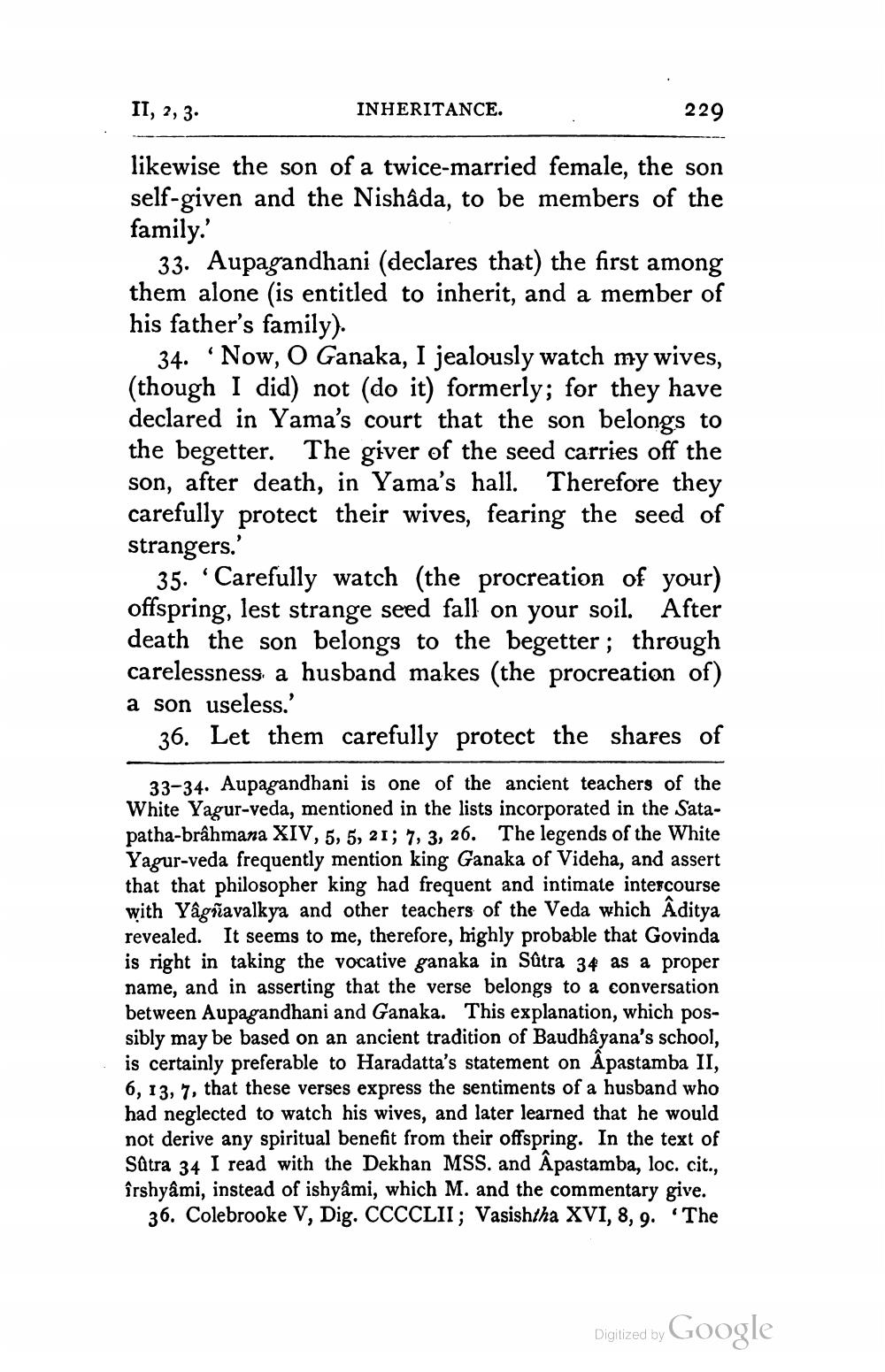________________
II, 2, 3.
INHERITANCE.
229
likewise the son of a twice-married female, the son self-given and the Nishâda, to be members of the family.'
33. Aupagandhani (declares that) the first among them alone (is entitled to inherit, and a member of his father's family).
34. Now, O Ganaka, I jealously watch my wives, (though I did) not (do it) formerly; for they have declared in Yama's court that the son belongs to the begetter. The giver of the seed carries off the son, after death, in Yama's hall. Therefore they carefully protect their wives, fearing the seed of strangers.'
35. Carefully watch (the procreation of your) offspring, lest strange seed fall on your soil. After death the son belongs to the begetter; through carelessness a husband makes (the procreation of) a son useless.'
36. Let them carefully protect the shares of
33-34. Aupagandhani is one of the ancient teachers of the White Yagur-veda, mentioned in the lists incorporated in the Satapatha-brâhmana XIV, 5, 5, 21; 7, 3, 26. The legends of the White Yagur-veda frequently mention king Ganaka of Videha, and assert that that philosopher king had frequent and intimate intercourse with Yâgñavalkya and other teachers of the Veda which Aditya revealed. It seems to me, therefore, highly probable that Govinda is right in taking the vocative ganaka in Sûtra 34 as a proper name, and in asserting that the verse belongs to a conversation between Aupagandhani and Ganaka. This explanation, which possibly may be based on an ancient tradition of Baudhayana's school, is certainly preferable to Haradatta's statement on Âpastamba II, 6, 13, 7, that these verses express the sentiments of a husband who had neglected to watch his wives, and later learned that he would not derive any spiritual benefit from their offspring. In the text of Sätra 34 I read with the Dekhan MSS. and Apastamba, loc. cit., îrshyâmi, instead of ishyâmi, which M. and the commentary give.
36. Colebrooke V, Dig. CCCCLII; Vasishtha XVI, 8, 9. "The
Digitized by Google




